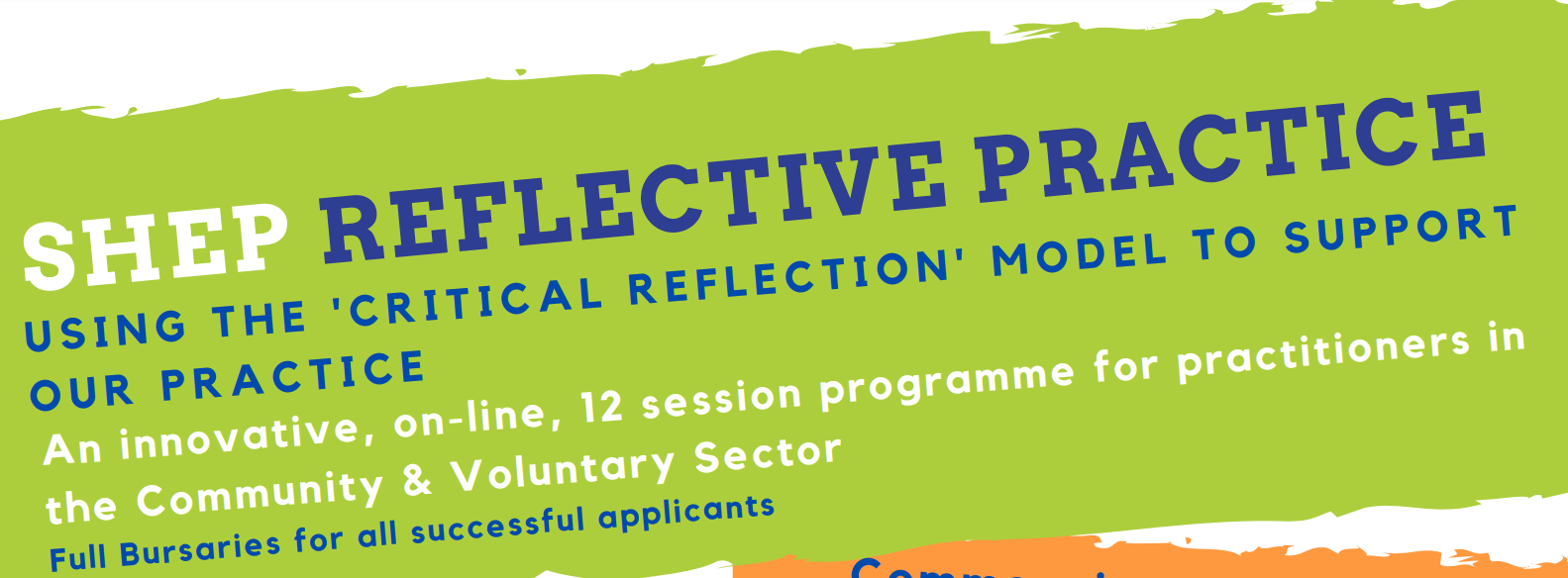Training Links Case Study: National Network for Training of Trainers (Reflective Practice)

This case study looks at the work of the National Network for Training of Trainers (Reflective Practice), as operated by The Social and Health Education Project (SHEP).
What is the goal of your Training Links Network?
We first got involved with Training Links in 2008 so we have been involved with Training Links for some years, though with three different Training Networks. The first programme involved a network of Community Development Projects in Cork and Kerry and we were the lead for that very successful programme.
In 2018-2019 we came back to the programme after a number of years with a new network and focus; building capacity in organizations to support reflective practice. The current network and programme (the third one) is a particularly exciting as it builds on and scales up the work achieved in the previous programme (which was a regional project based in the South East). The aim of this project is to work collaboratively and creatively to maintain high quality and responsive services through developing stronger processes for reflective practice and organisational learning, particularly in the context of COVID-19.
We believe that one of the impacts of this will be to enhance the leadership and management skills and enhance employee well-being in the workplace in the context of COVID-19.
What activities have you been doing to work towards that goal? What have been the successes for you so far?
As with all of the Training Links Programmes we have been involved in the core activity is creating training cohorts from among interested staff of the network members to training together in the programme area and upskill. Currently, we have created five mixed cohorts and all groups participate in a 30 hour Training of Trainer programme in reflective practice. Groups meet either fortnightly or monthly. The high levels of response have proven the huge need and appetite for this type of training. What is particularly significant for us this time, is that everything has had to be adapted because of the COVID-19 pandemic.
All of the training is therefore on-line and there has been huge learning for us all. A clear learning is that this type of work is very transferable to a fully online or a blended format; though delivering this type of training in person is the preferred format. A second type of activity that has run through all three programmes has been the development of a set of resources that become available to participants to use post training. In the current programme we have developed a set of resources for delivering the training on-line. This is very important as there is always a strong emphasis on sustainability.
And a third success so far in this current programme is that we have been able to include new national organizations in the training (through a recent dissemination workshop specifically targeting youth organizations, which is one of our priority sectors) and this will support the gradual cascading out of the impact of this work across the community and voluntary sector generally.
What value does being involved in the Training Links Network bring to your network members – now and in past experience?
One of the key features of this programme is that is requires community and voluntary groups to come together around common training needs. This encourages collaboration, participation, and creativity. It also creates new connections and synergies. Our experience is that participants really appreciate the opportunity to train with staff from other community and voluntary organisations.
As second important feature of the Training Links Programme is that it allows for groups of Community and Voluntary organizations to respond creatively to new and emerging training needs, whilst keeping a particular focus. We can pilot new training, test new approaches, and learn from the experience of rolling out a programme with good support from The Wheel as needed. Finally, a very important aspect of The Training Links Programme is that is has allowed us to take the very positive results and experience of one programme and scale it up considerably and take it to a higher level in a subsequent programme.
This is exactly what we are doing in the current programme (2021-22) – as a group we have brought in new partners to move a regional project to a national programme, with the potential to significantly impact the community and voluntary sector over time.
